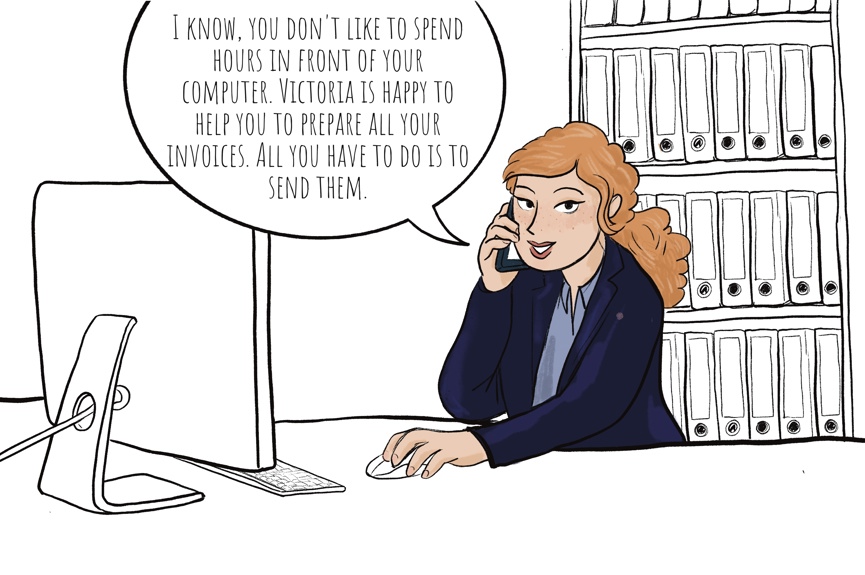- Tax Law , Commercial and Economic Law
- Structured electronic invoicing , electronic invoicing , e-invoicing , combat VAT fraud , invoices sent electronically in pdf format , obligation to issue electronic invoices , electronic invoicing obligation , e-invoicing obligation , EN 16931-1 and CEN/TS 16931-2 , tax authorities will consider that no invoice has been issued , a temporary deduction of costs increased by 120 p.c , periodic subscriptions to invoicing programmes , consultancy costs
The law introducing the obligation to issue structured electronic invoices between taxable persons was published in the Belgian Official Gazette on 20 February 2024.
The obligation to issue electronic invoices stems from the European "VAT in the digital age" project and, more generally, from the aim to combat VAT fraud, which is a key issue in most European countries.
The invoicing rules that have been introduced are modelled on those that already apply to transactions between the private and public sector (B2G), including public procurement contracts.

In this respect, it is important to make a distinction between invoices sent electronically in pdf format and the obligation to issue electronic invoices (e-invoicing), which is more restrictive and subject to a strict procedure.
The law defines electronic invoicing or e-invoicing as an electronic invoice "that has been issued, transmitted and received in a structured electronic form that enables it to be processed automatically and electronically".
1. Who is e-invoicing for?
Electronic invoicing applies to all purchases and sales of goods and/or services made in Belgium and between businesses established in Belgium that are subject to VAT.
In practical terms, the businesses concerned by the electronic invoicing obligation are those established in Belgium, registered and subject to VAT in Belgium.
As a result, the e-invoicing obligation also concerns foreign entities with a permanent establishment in Belgium. But, it does not apply to businesses established outside of Belgium (even if they are identified for VAT purposes in Belgium, with or without the appointment of a responsible representative).
However, the law specifies that certain issuers of invoices are excluded from the scope of the e-invoicing rules:
- Taxable persons subject to VAT under a flat-rate scheme, other than the special VAT scheme for farmers;
- Taxable persons subject to VAT who have been declared bankrupt;
- Persons benefiting from a VAT exemption under Article 44 of the VAT Code.
By way of example, an ambulance transport company will not be subject to the e-invoicing obligation, whereas a Belgian company undergoing judicial reorganisation proceedings but subject to VAT will have to comply with the new invoicing rules.
It should be noted that the recipient of the invoice is obliged to accept it.
2. How is electronic invoicing introduced?
We will have to wait for the Royal Decree before we know the technical details of the obligations to issue, transmit and receive electronic invoices.
Notwithstanding this, it is recommended to use the European PEPPOL network, unless the parties decide by mutual agreement to choose a different network for their structured electronic invoicing.
In any event, businesses will have to comply with the European Standard (EN 16931-1 and CEN/TS 16931-2) which defines the structure of the electronic invoice.
The data will then be transmitted by the company carrying out the transaction via a specific platform provided by the tax authorities.
The HERMES public platform may be used temporarily to send electronic invoices if the recipient does not yet have suitable software for this purpose.
3. When is e-invoicing due?
The e-invoicing obligation should apply from January 2026, and from that date the businesses concerned will have to comply with specific invoicing procedures.
Failure to comply with these procedures will result in severe penalties, as the tax authorities will consider that no invoice has been issued. This will make it impossible to claim VAT on the invoice and may result in a tax fine.
4. Deduction of costs incurred in connection with electronic invoicing
It must be emphasized that a temporary deduction of costs increased by 120 p.c. is provided for, with the exception of depreciation costs, for costs incurred in setting up invoicing software, as well as for consultancy costs relating to the obligations contained in this law.
This measure will apply to sole traders and SMEs from tax year 2024 to 2027 inclusive.
By way of example, it covers the cost of periodic subscriptions to invoicing programmes and consultancy costs incurred specifically for the preparation or the implementation of the obligations set out in this law.
Depreciation costs relating to electronic invoicing for sole traders and SMEs will be eligible for the increased investment allowance of 20 p.c. from 1 January 2025.
In this way, equal tax treatment of expenditure on structured electronic invoicing is guaranteed, regardless of whether the expenditure takes the form of an investment or pure cost.
Given the complexity of the procedures and the diversity of situations, it is advisable to seek professional advice. Our team of tax law specialists are ready to guide you through the process and to answer any questions you may have.
So do not hesitate to contact our specialists on +32 (0)2 747 40 07 or info@be.Andersen.com.




